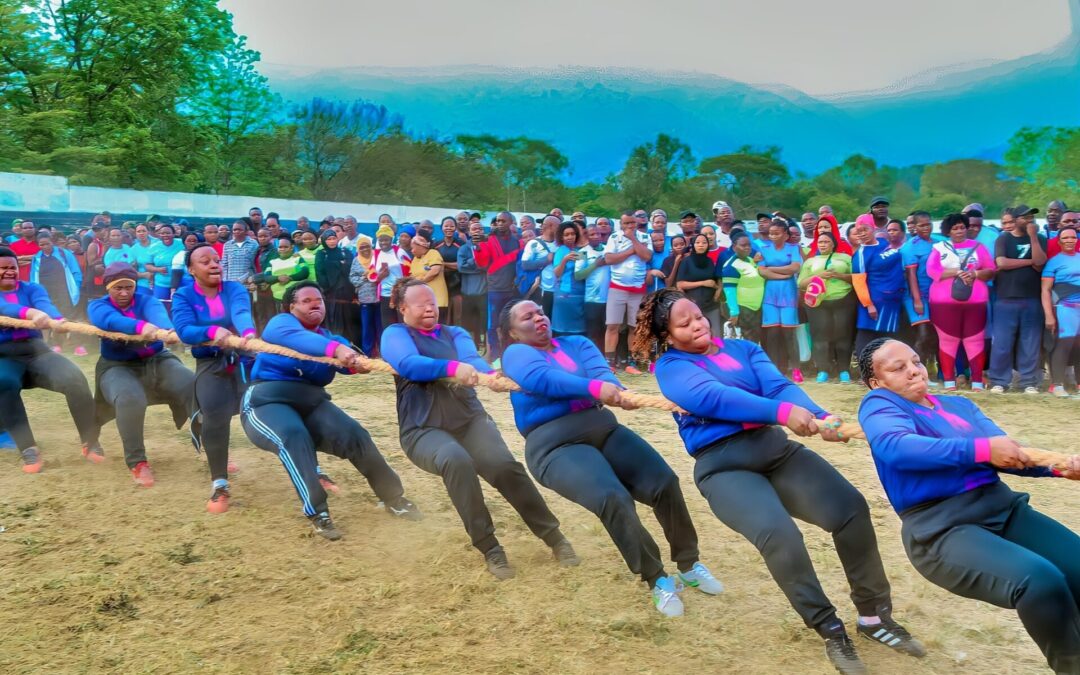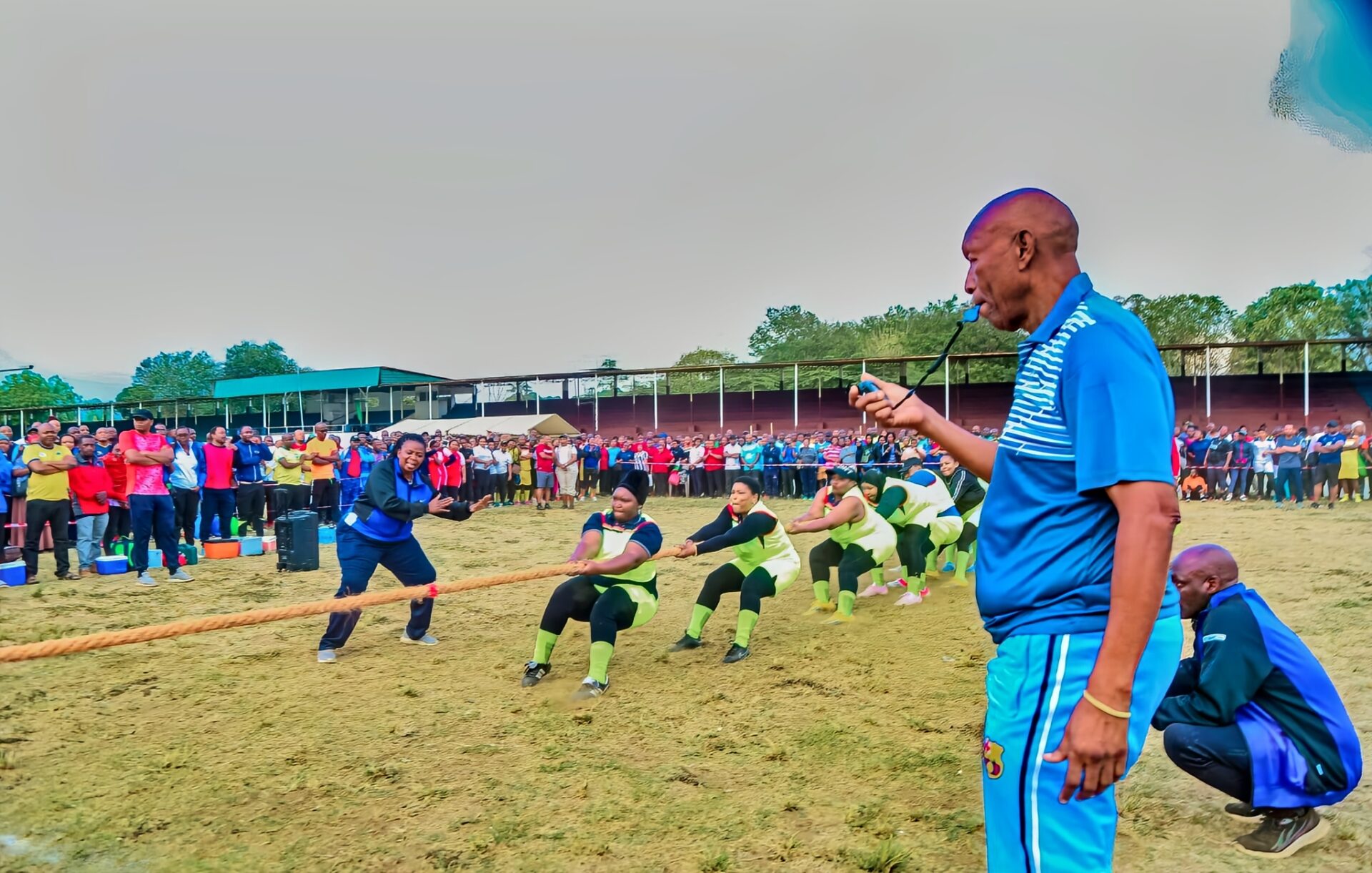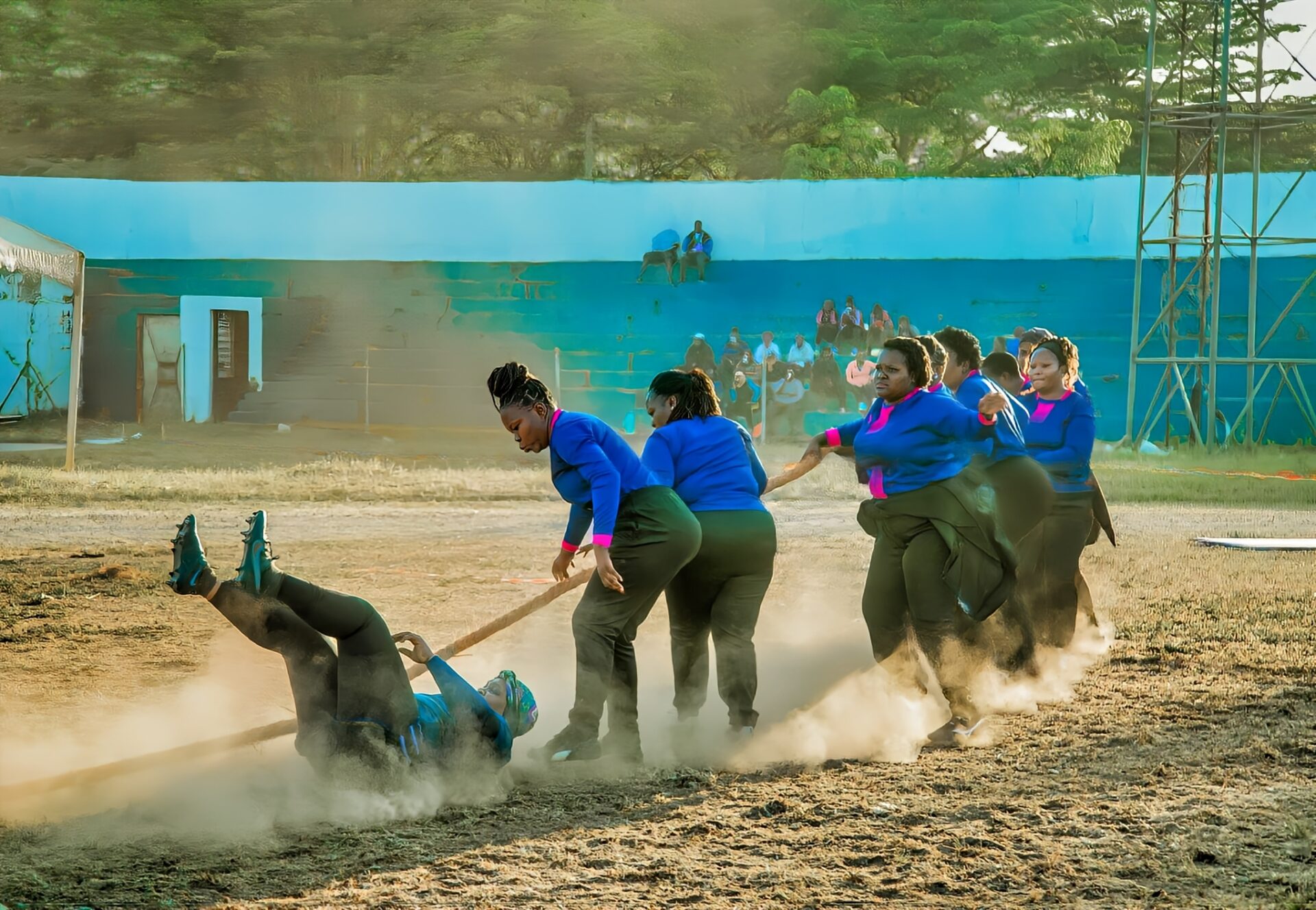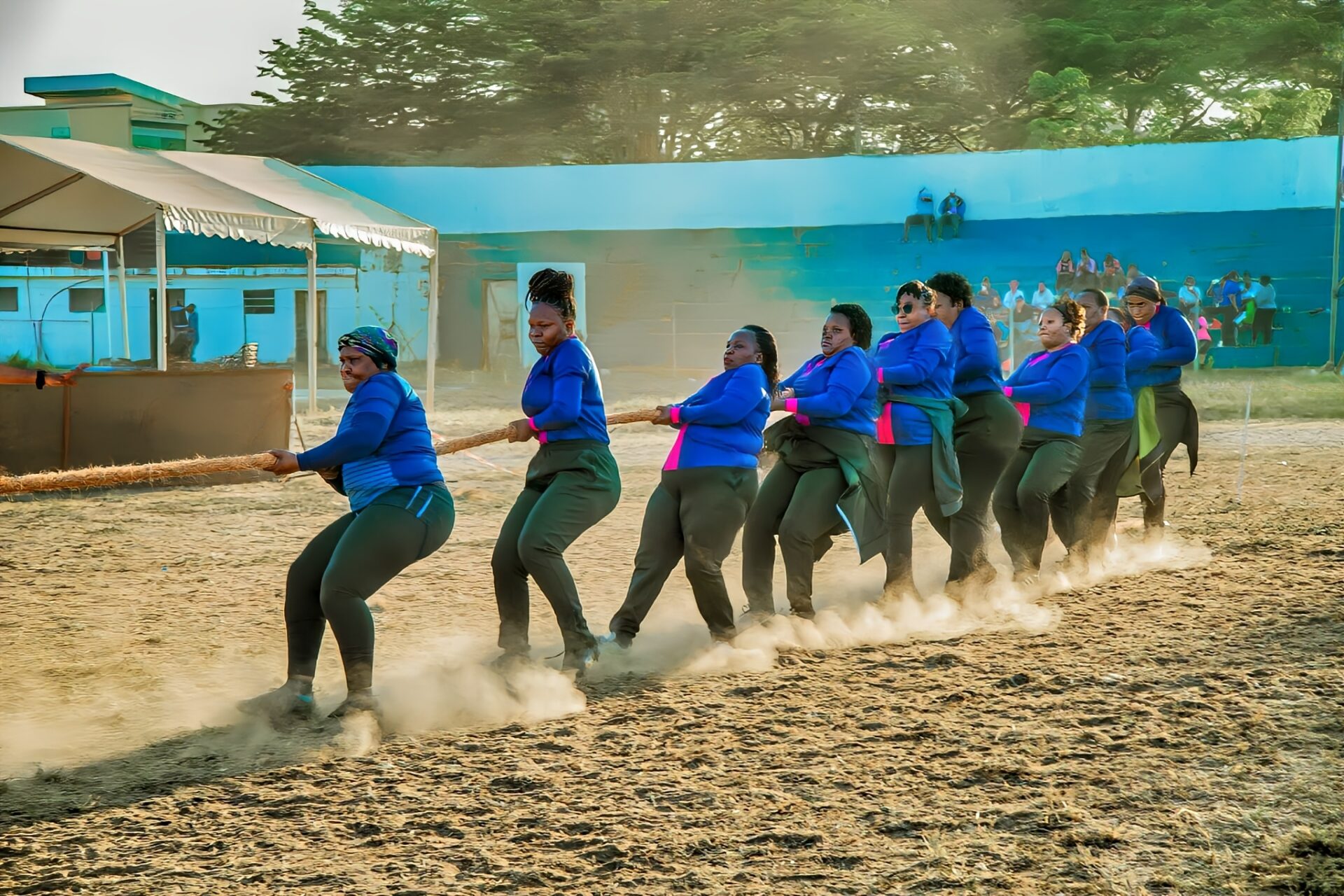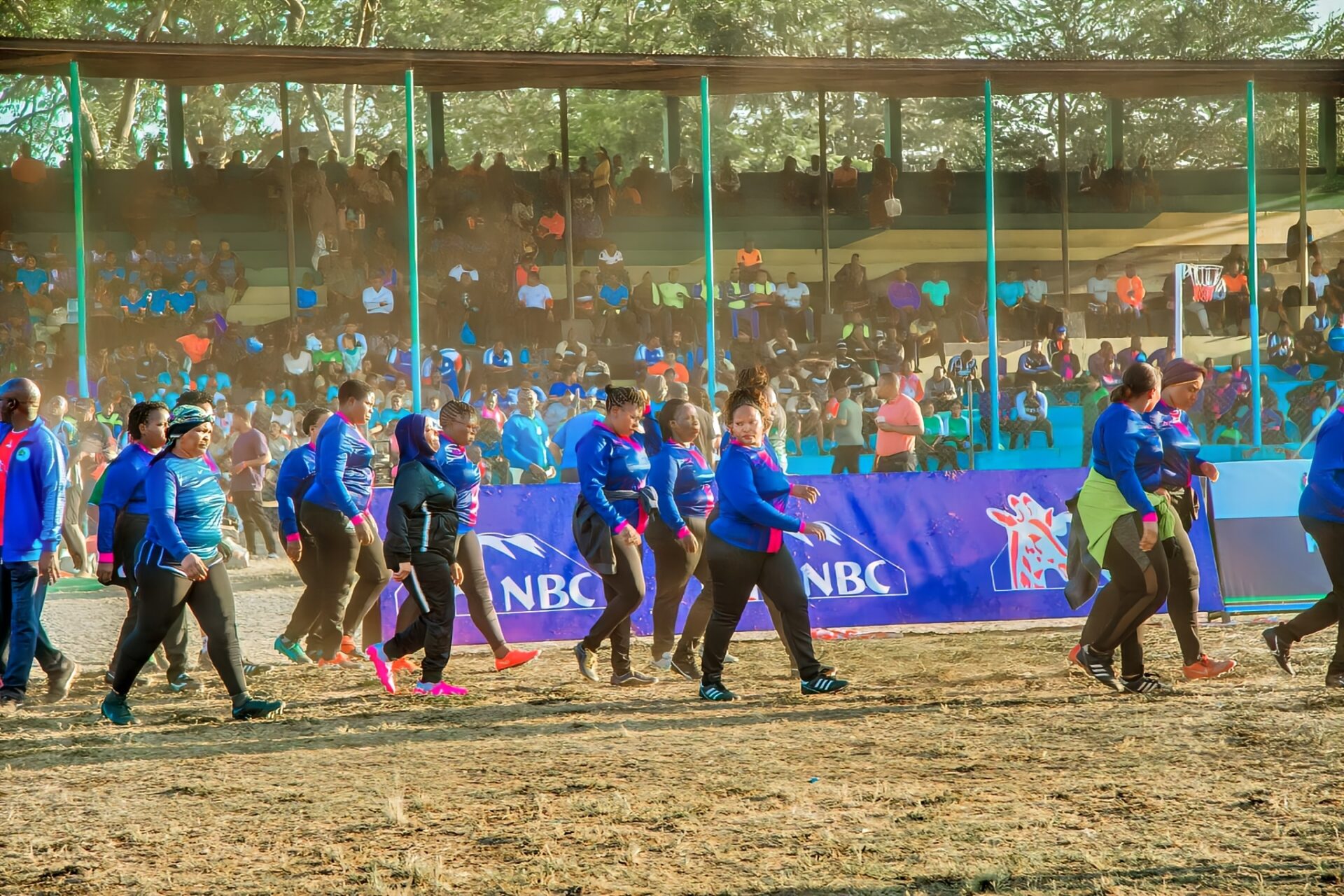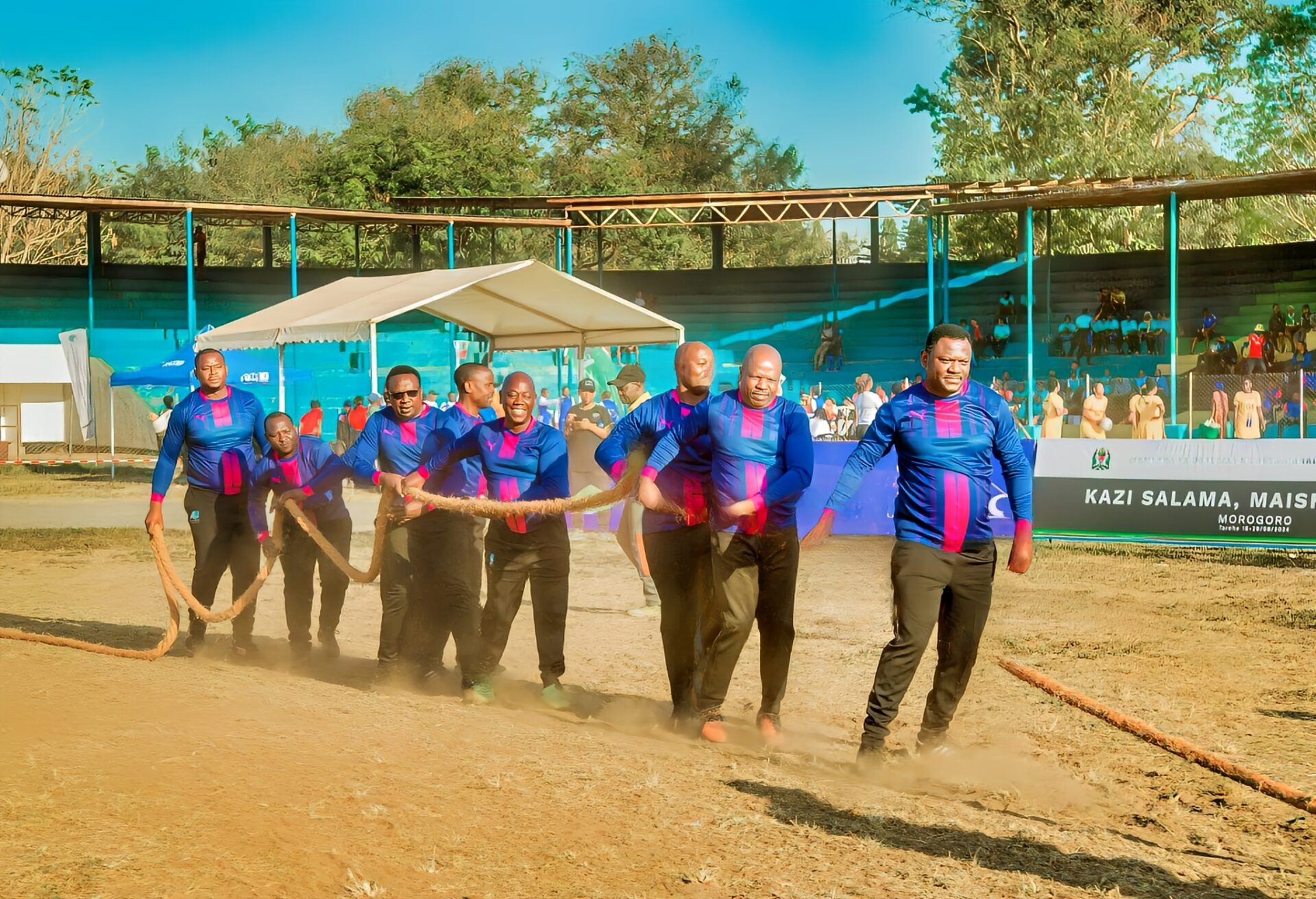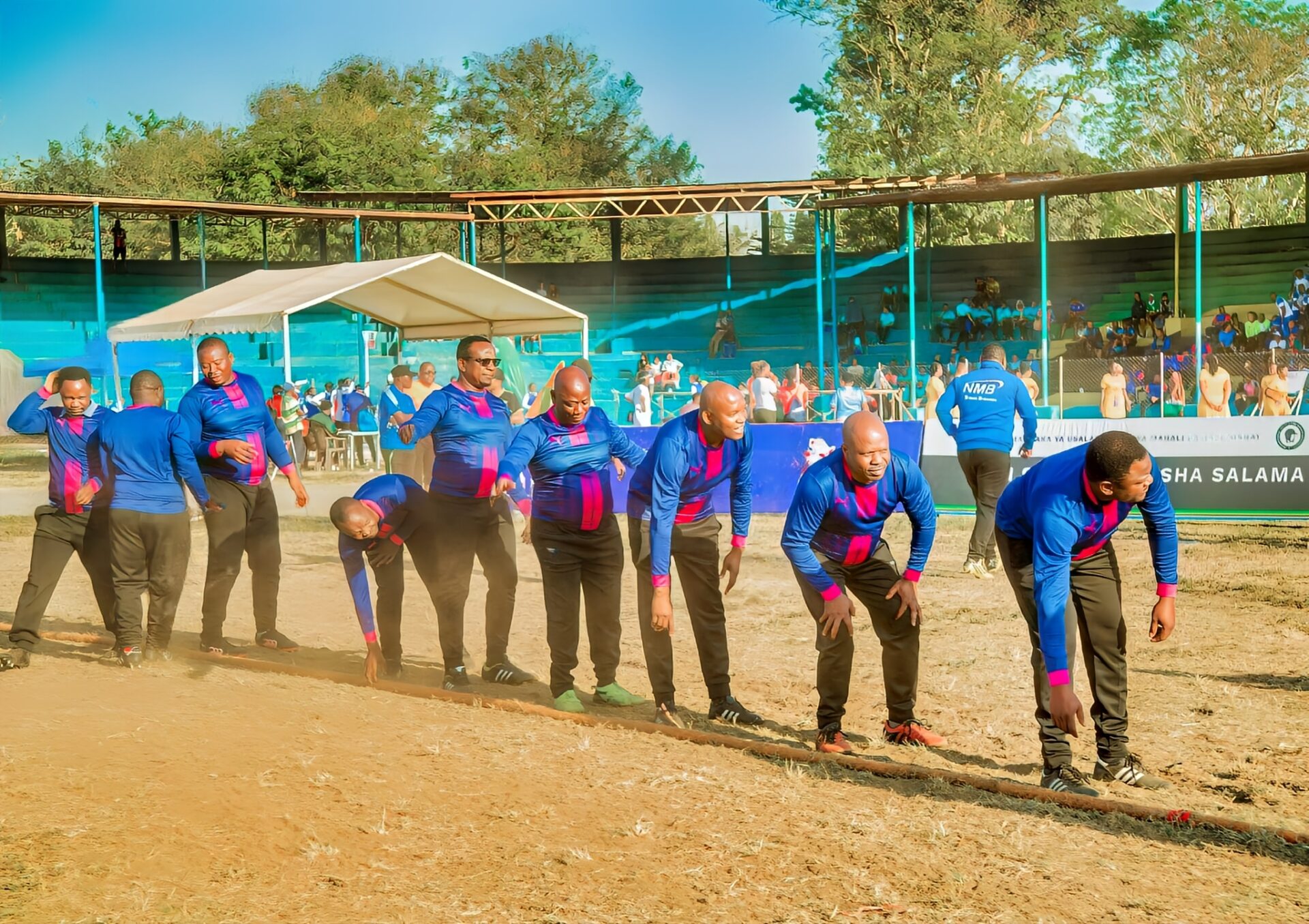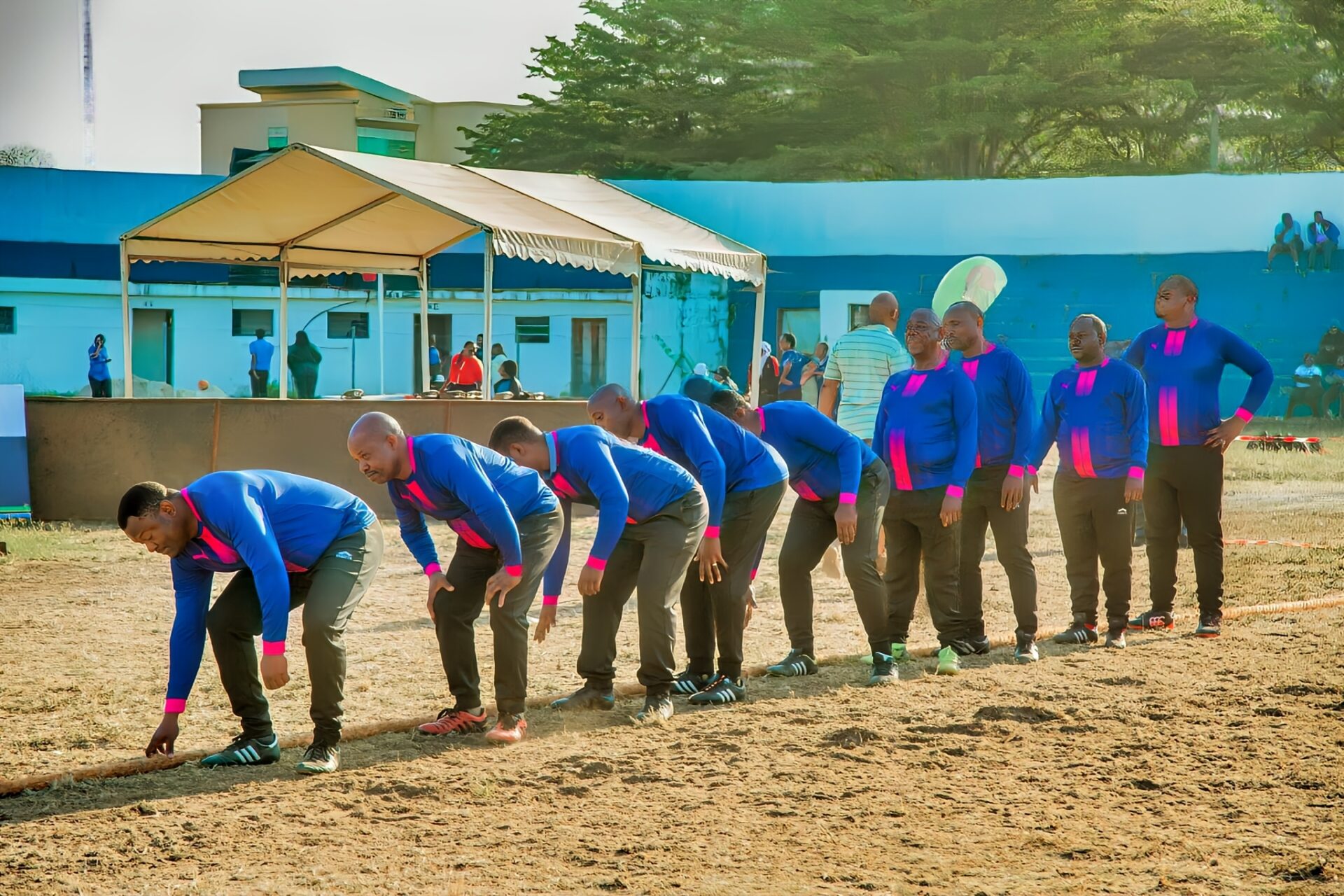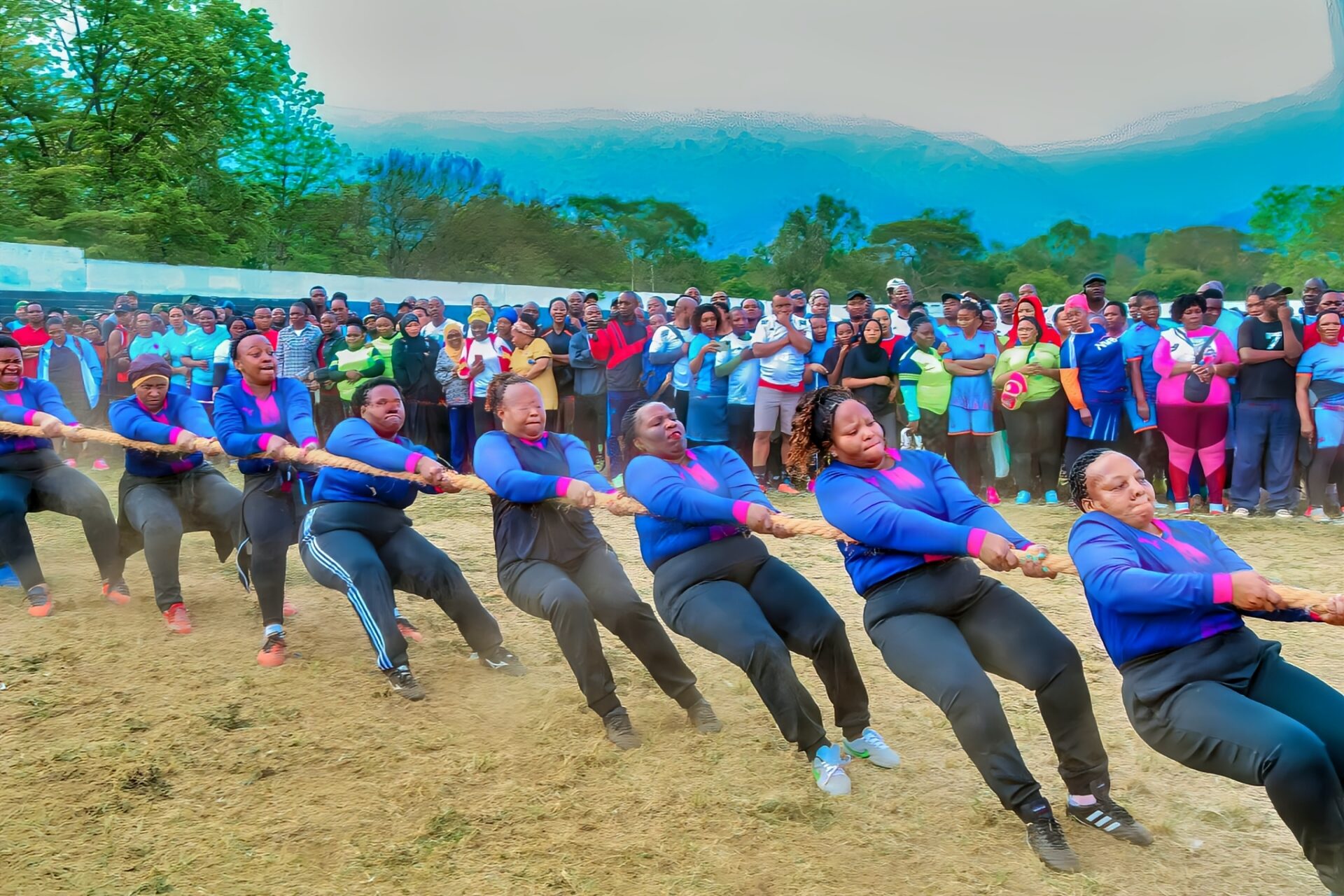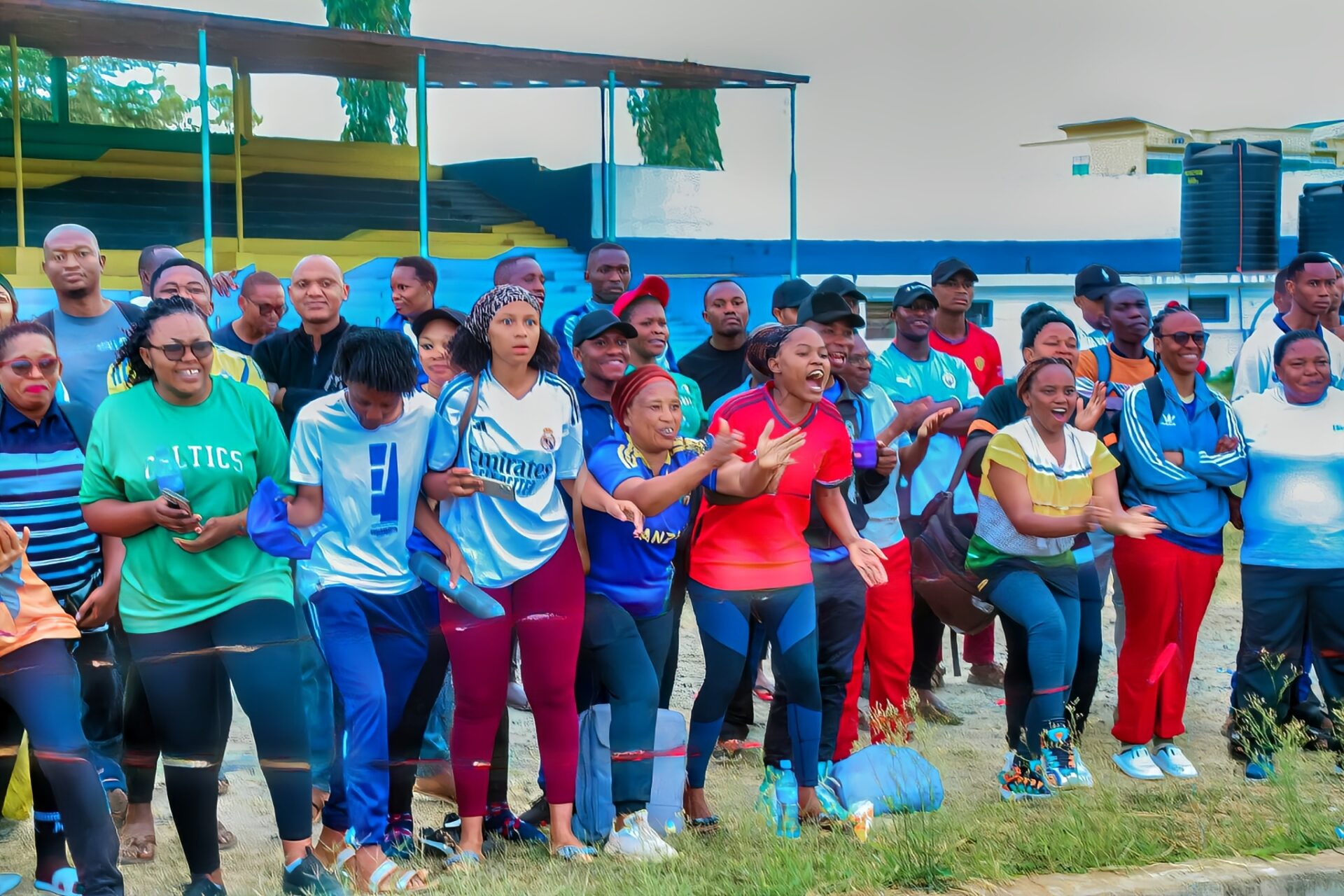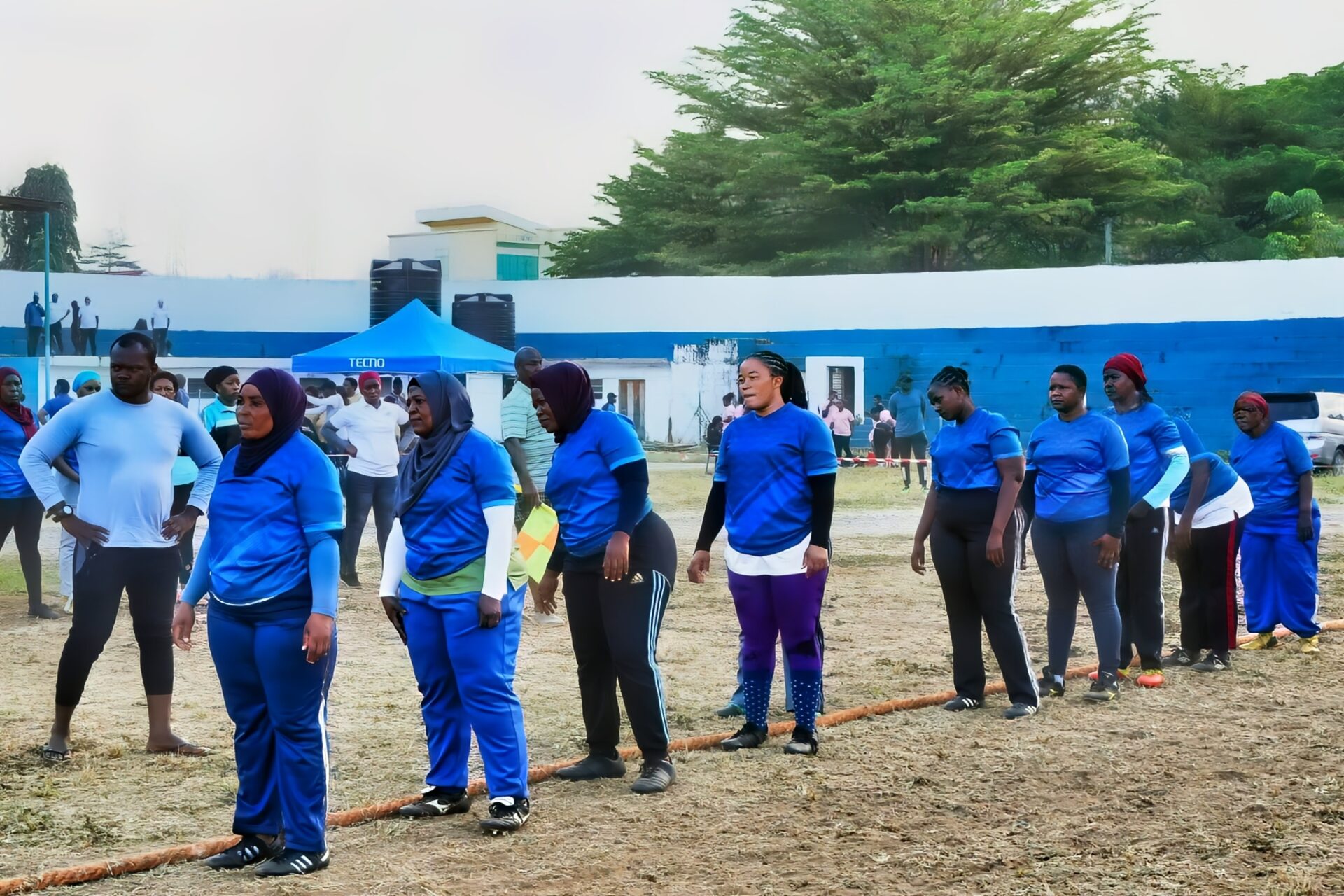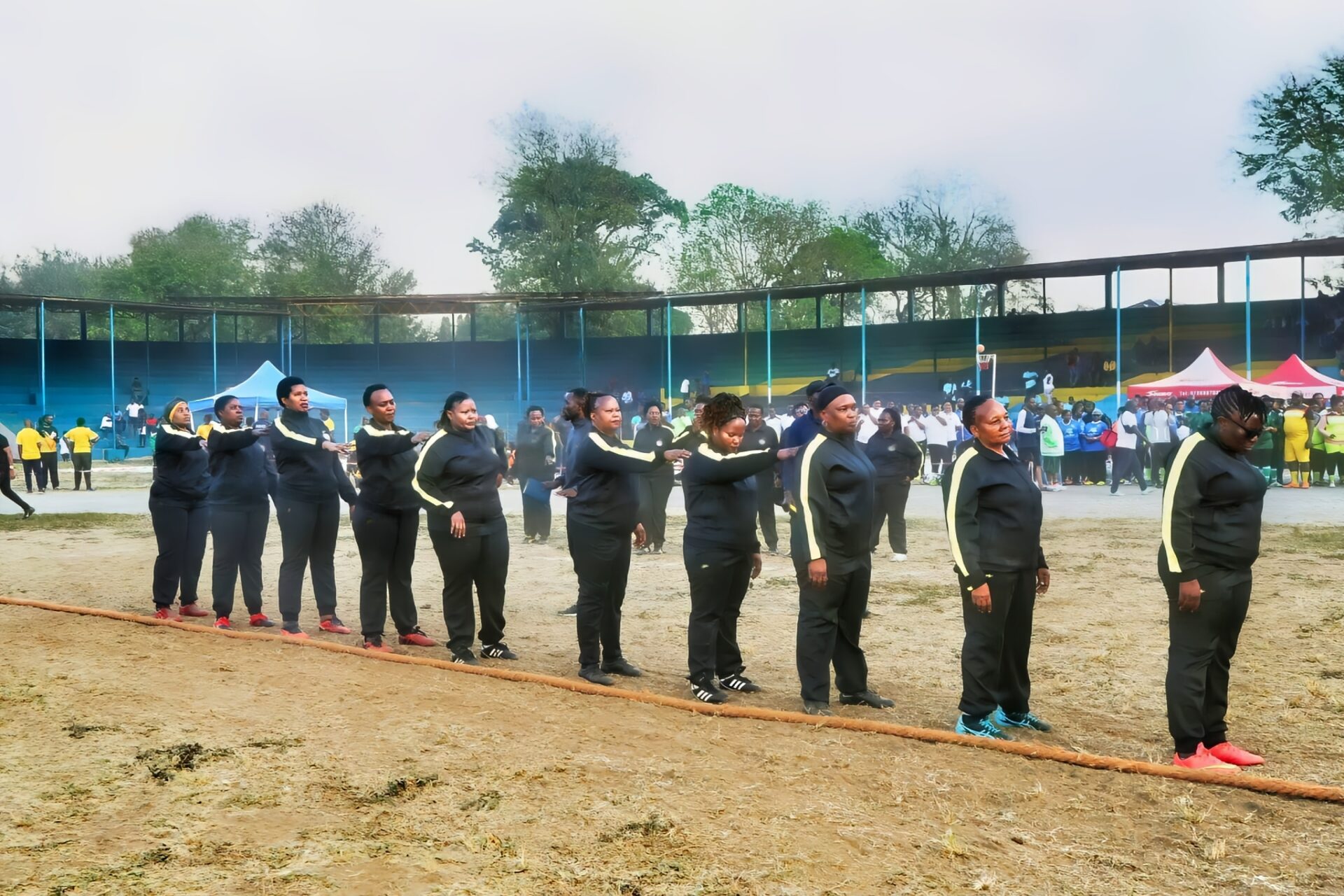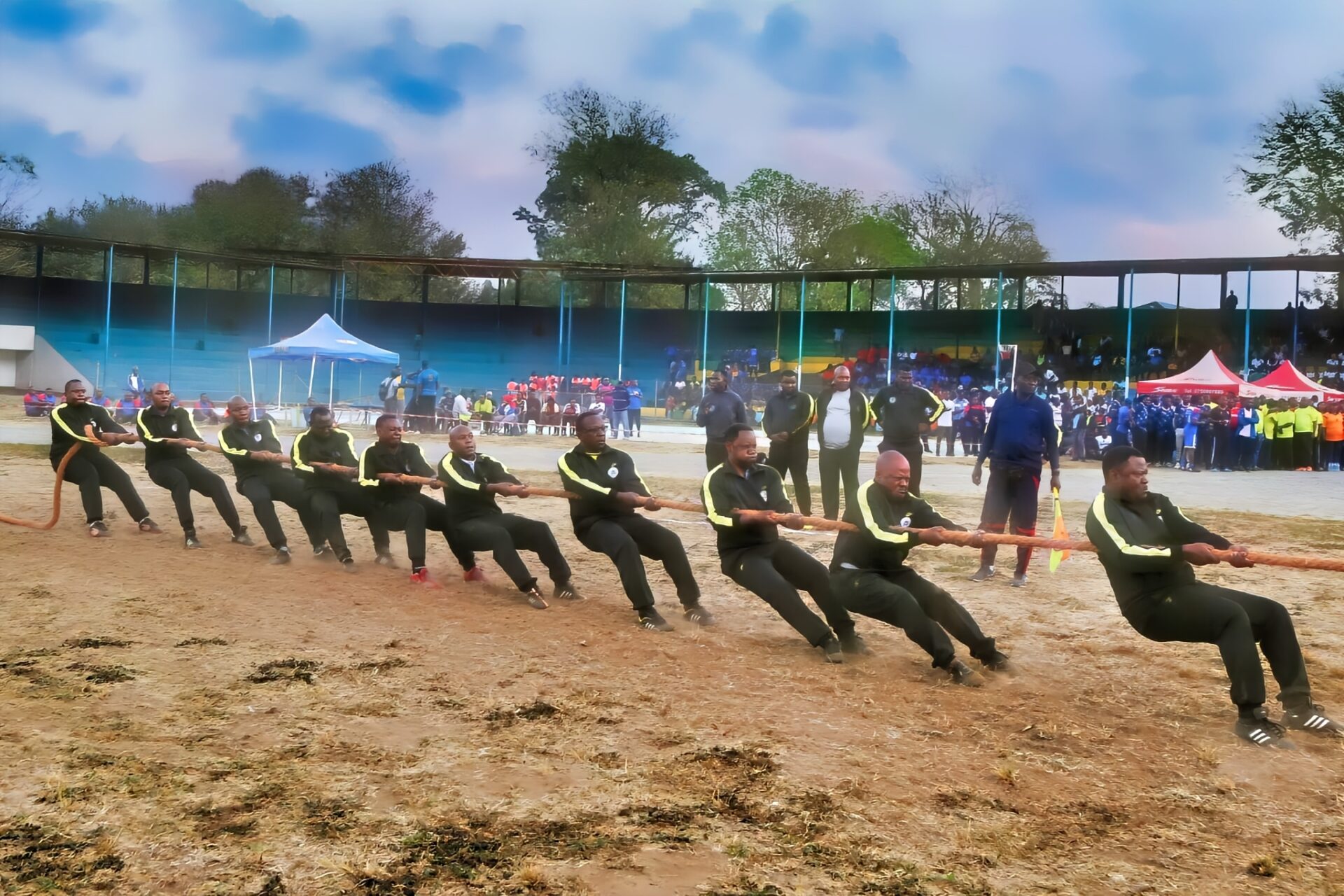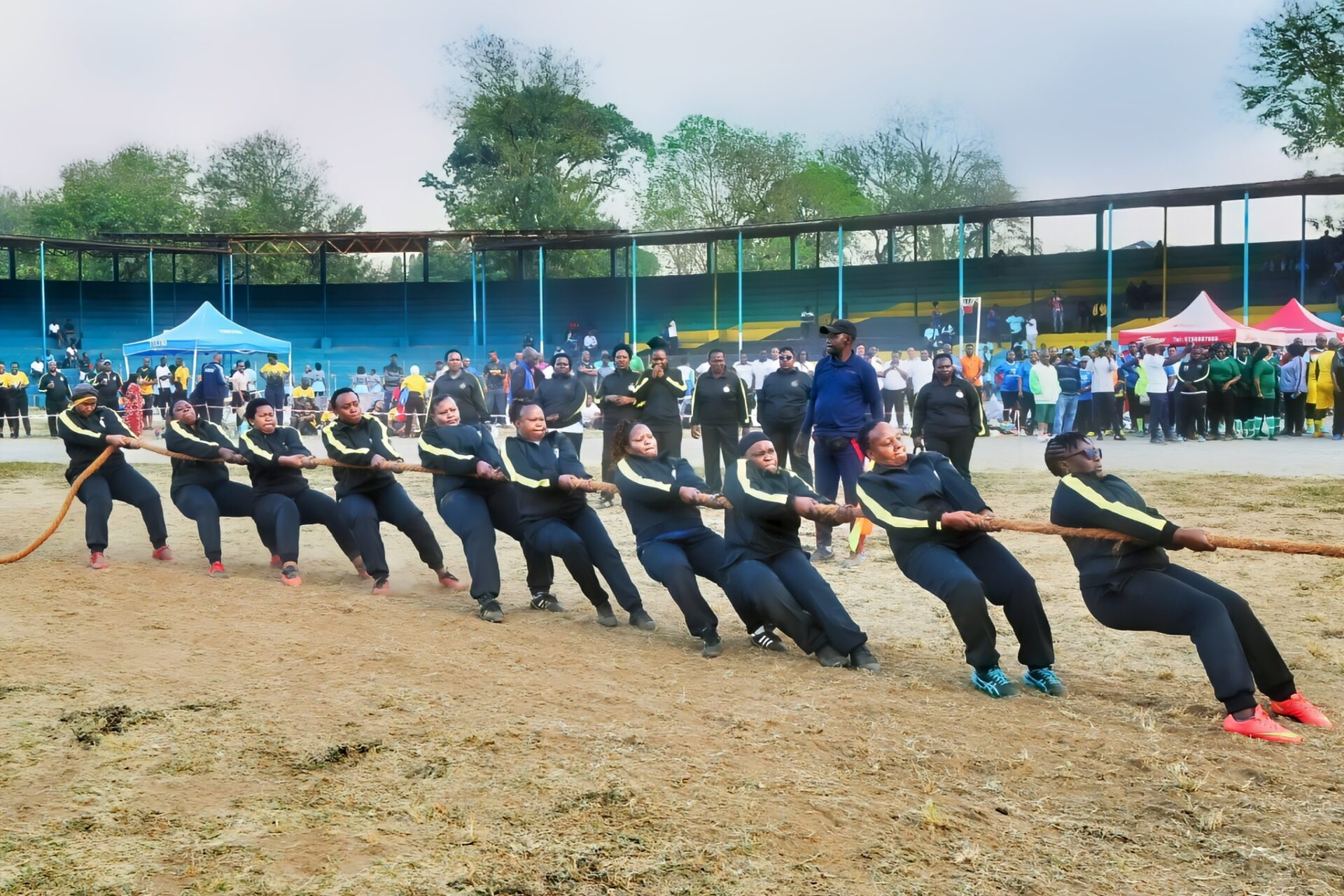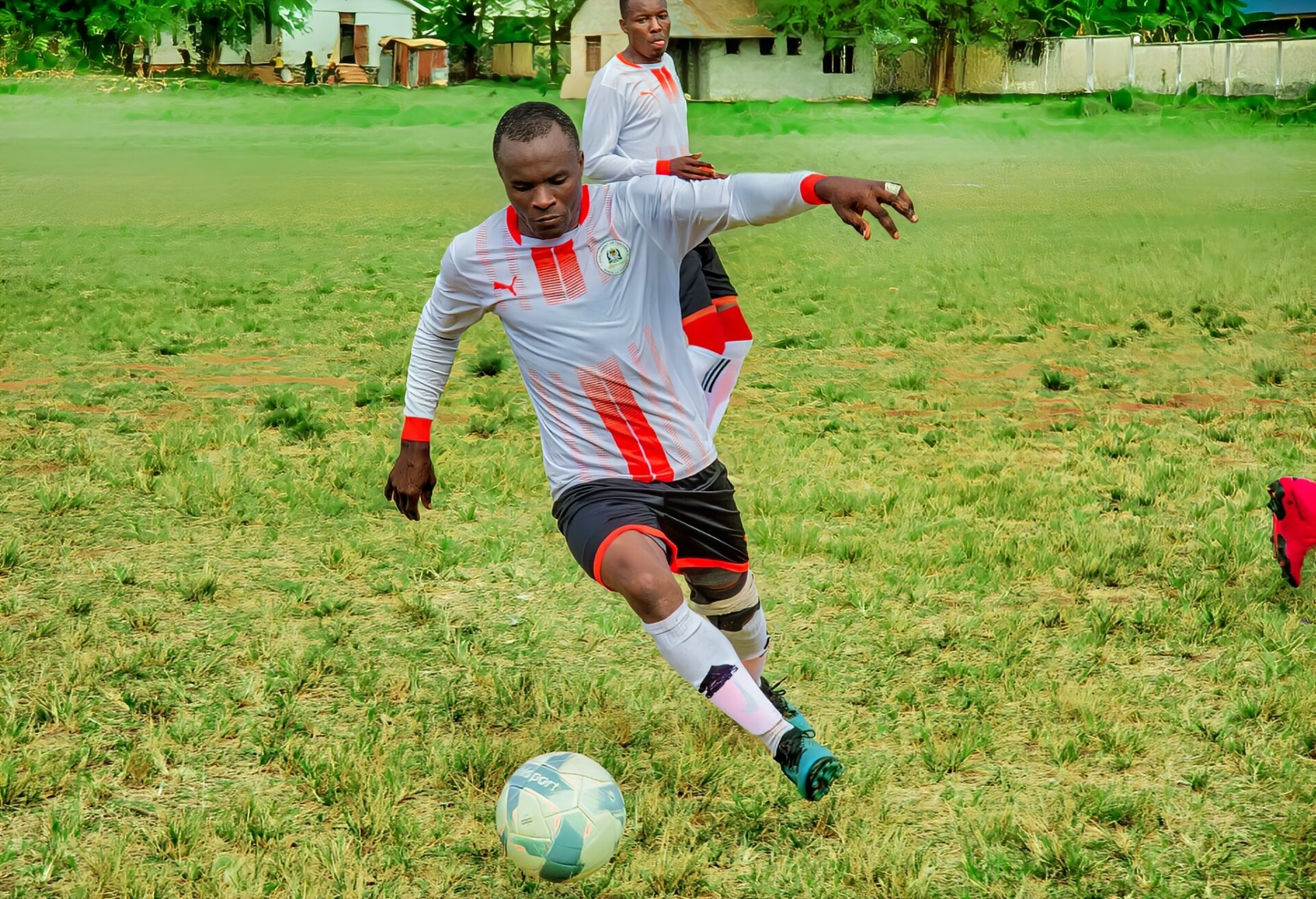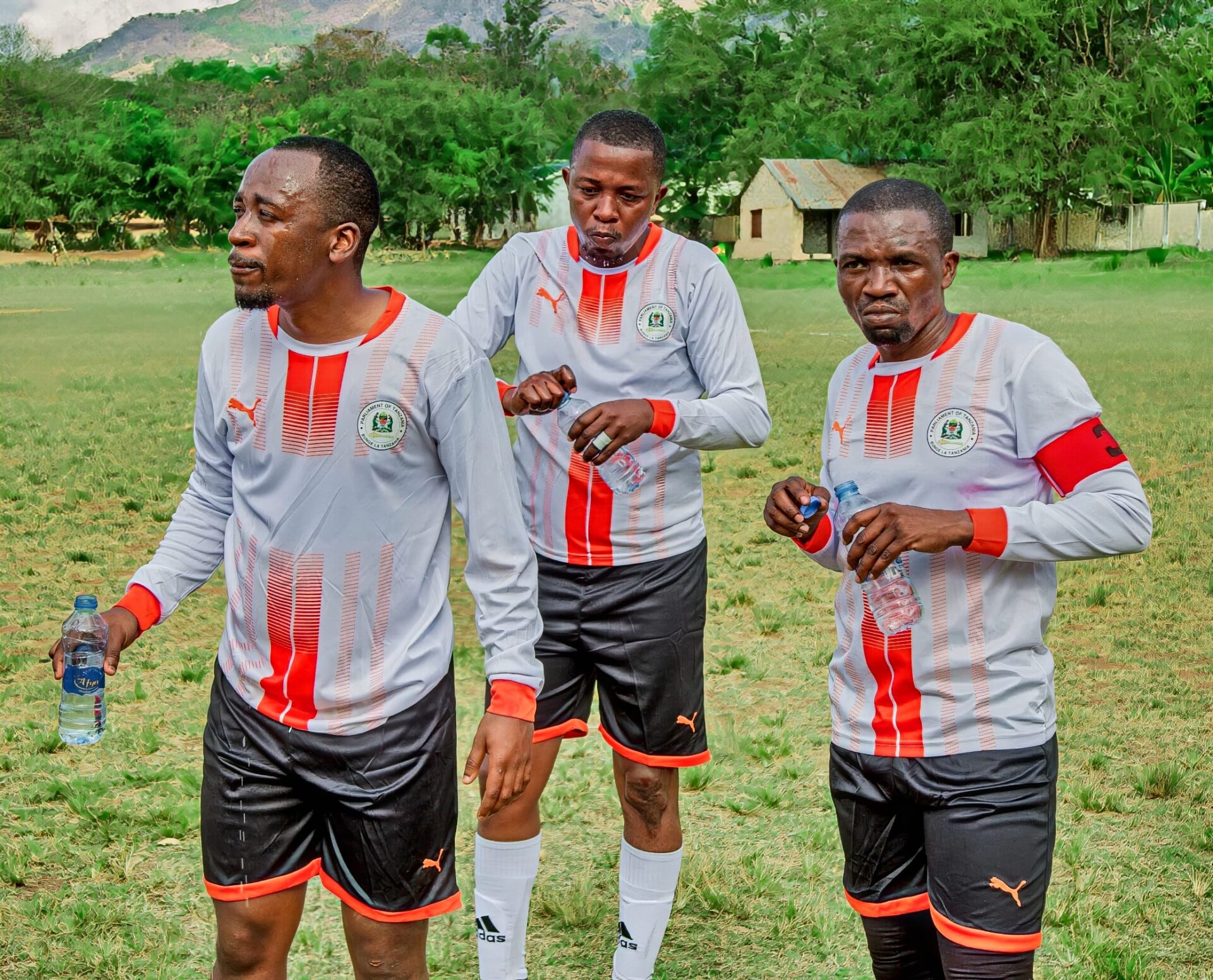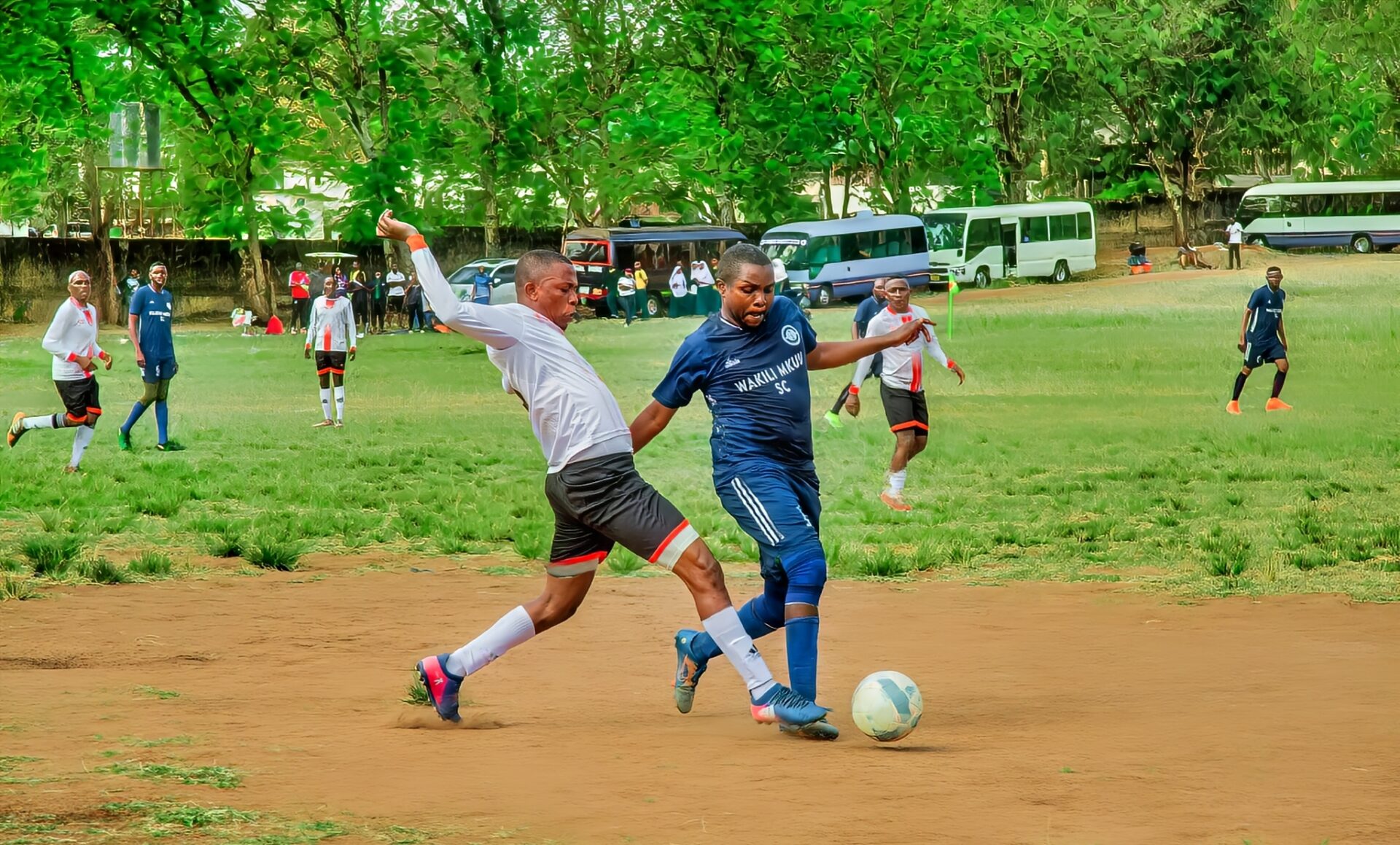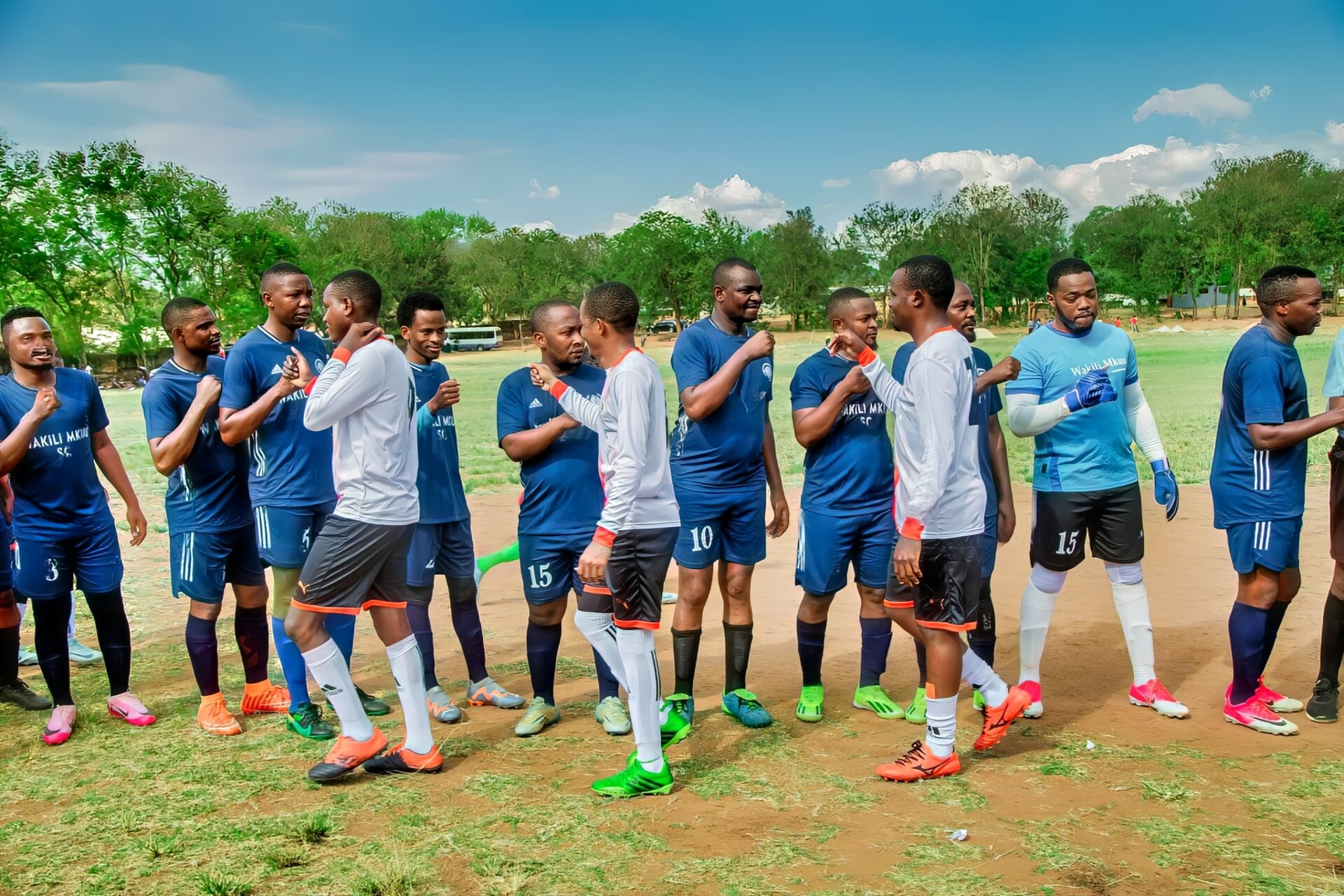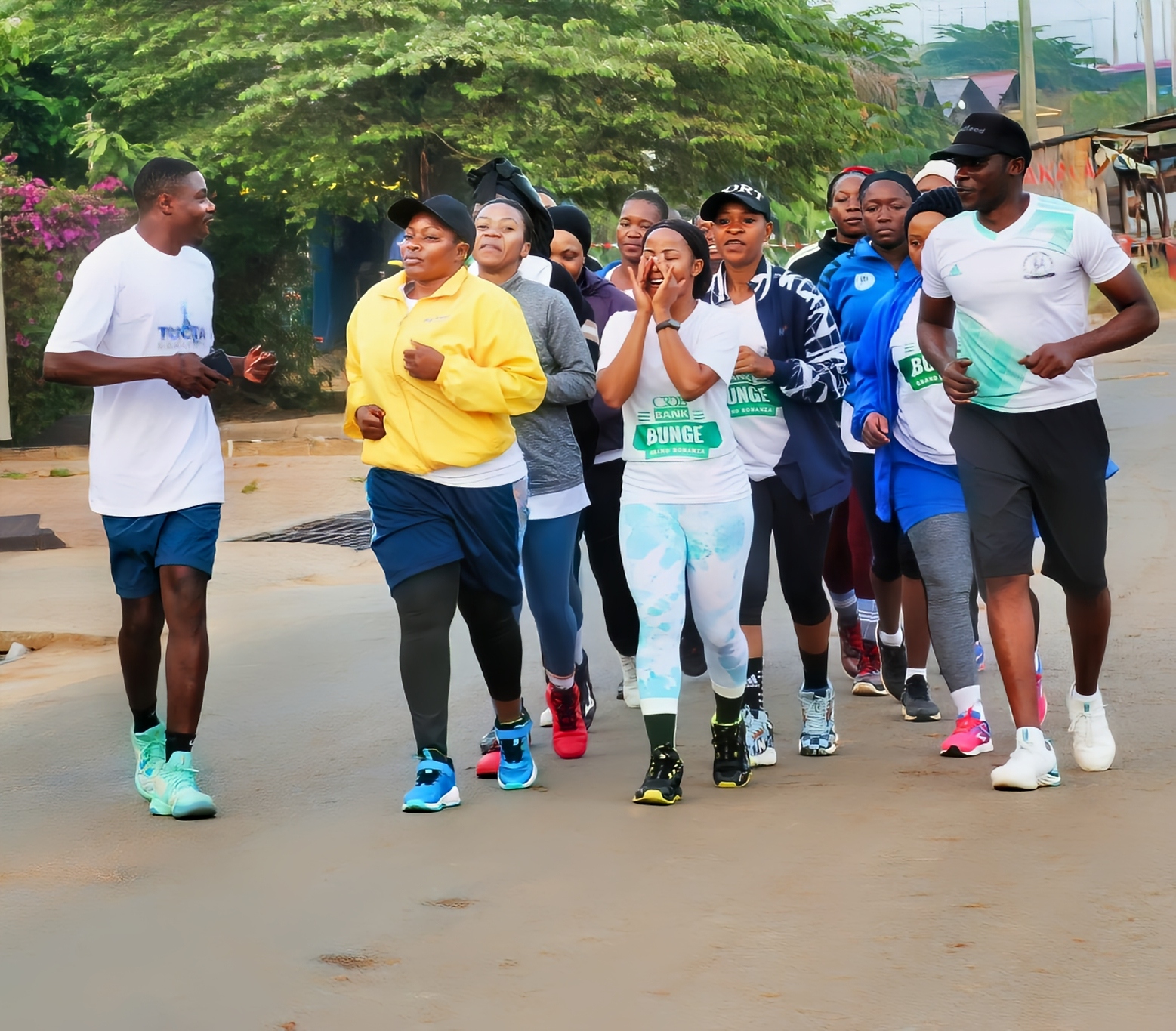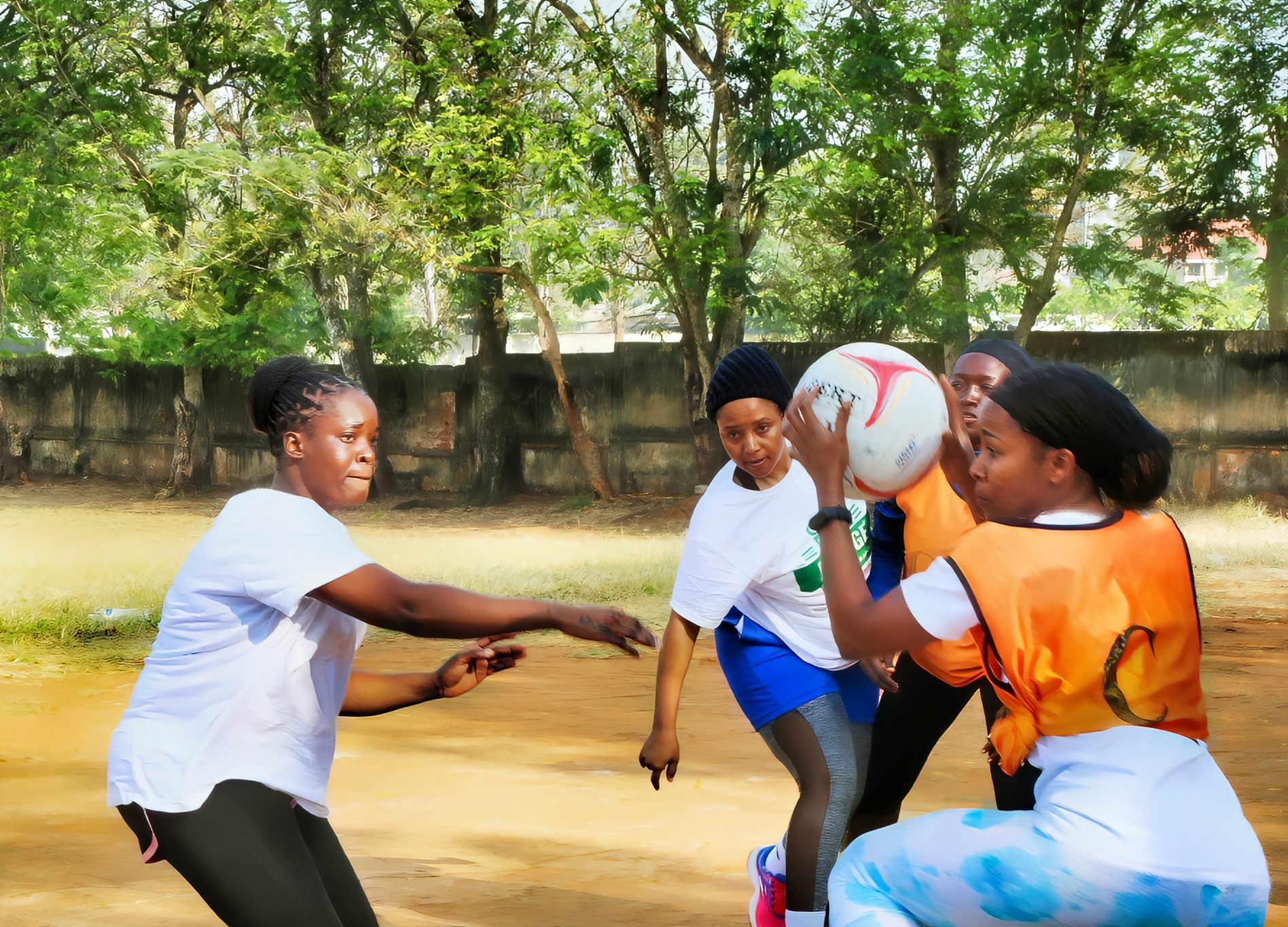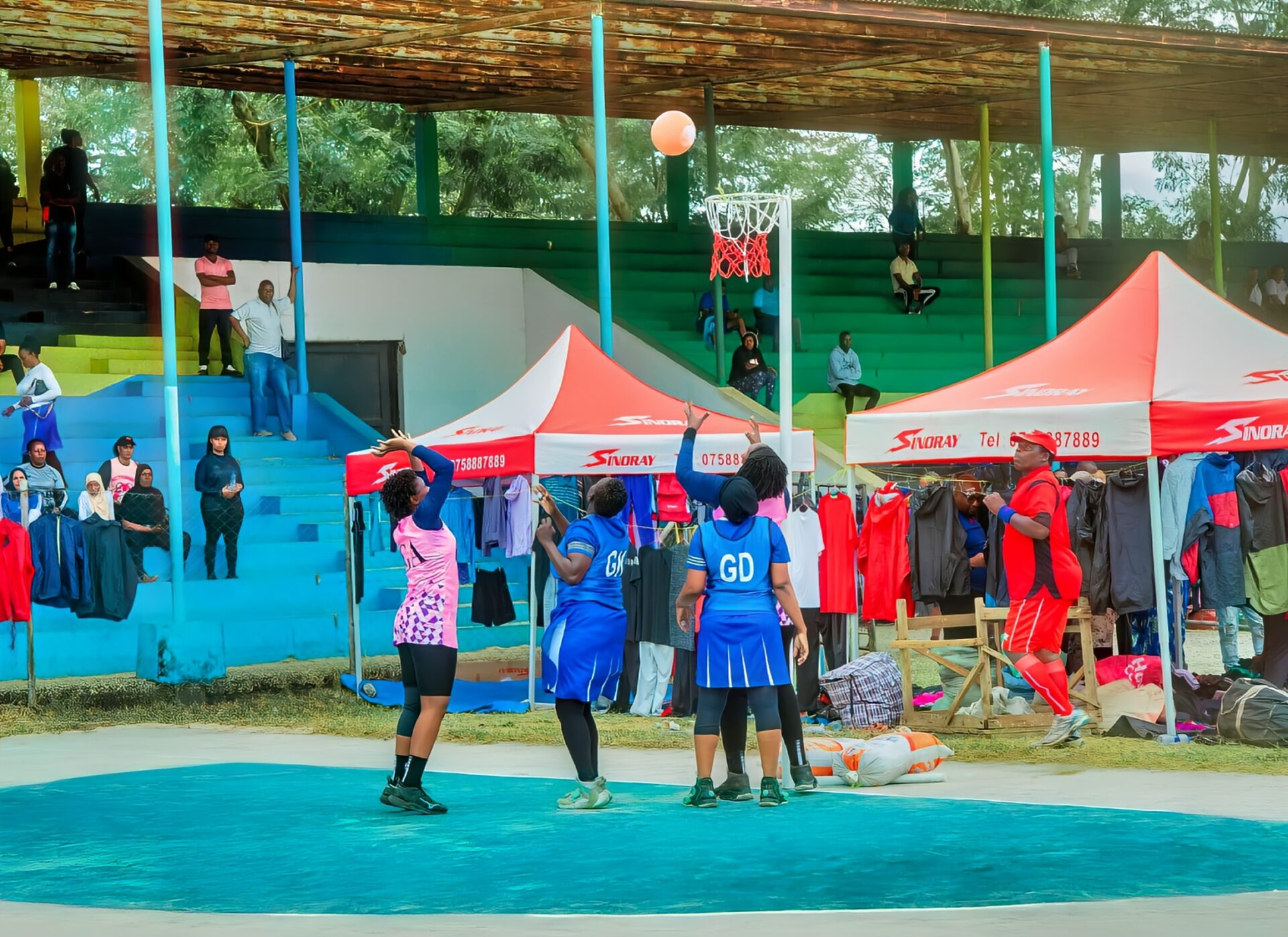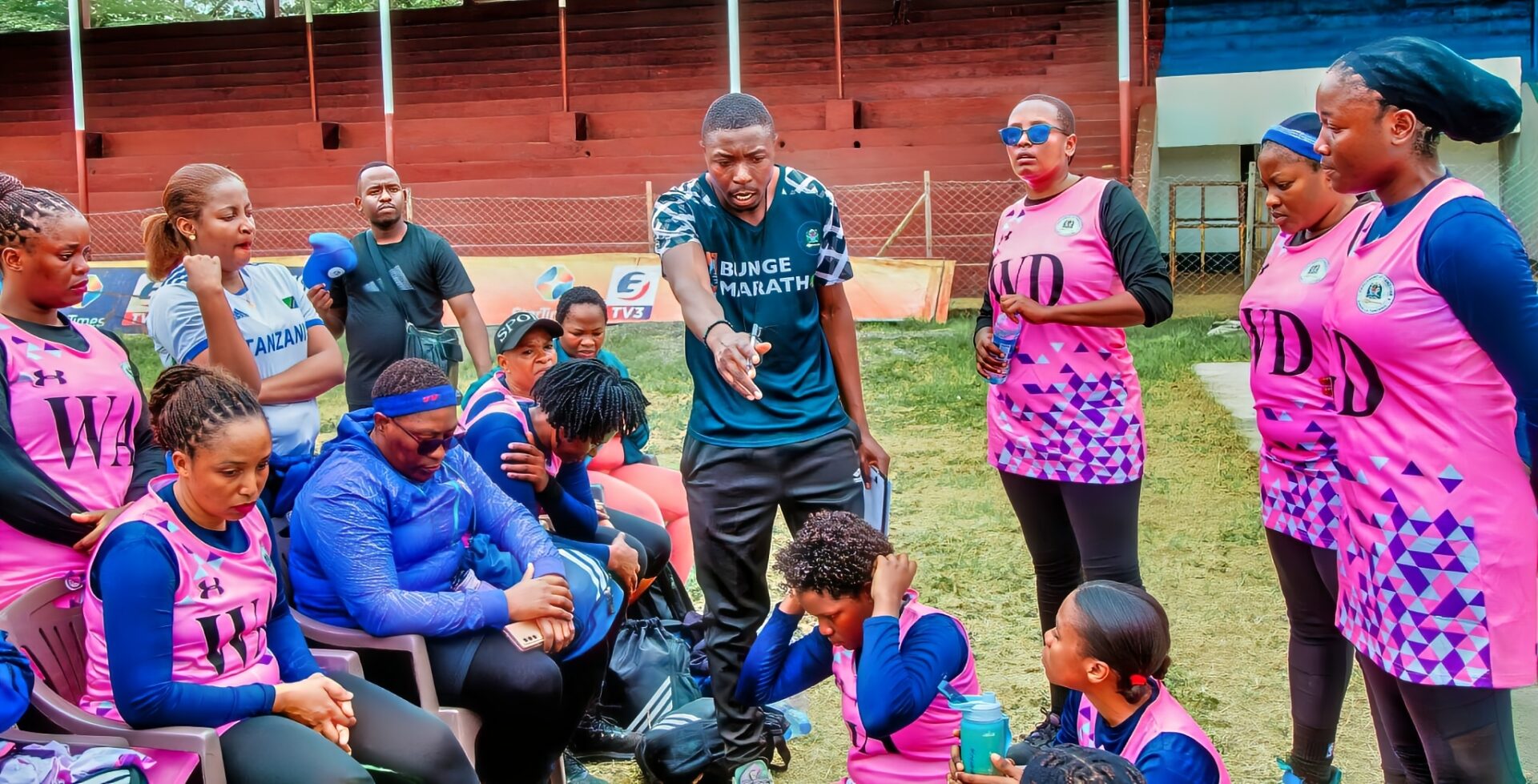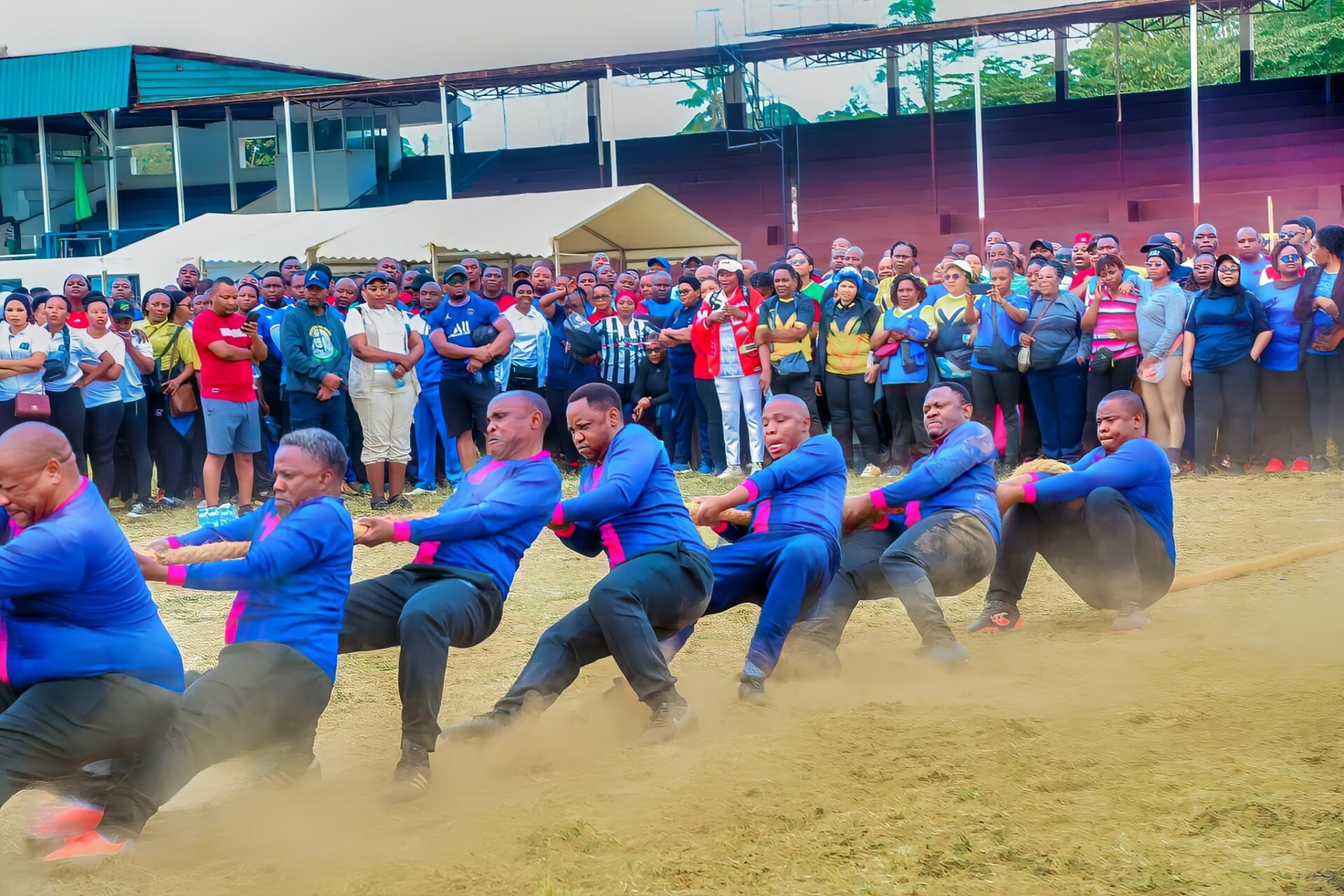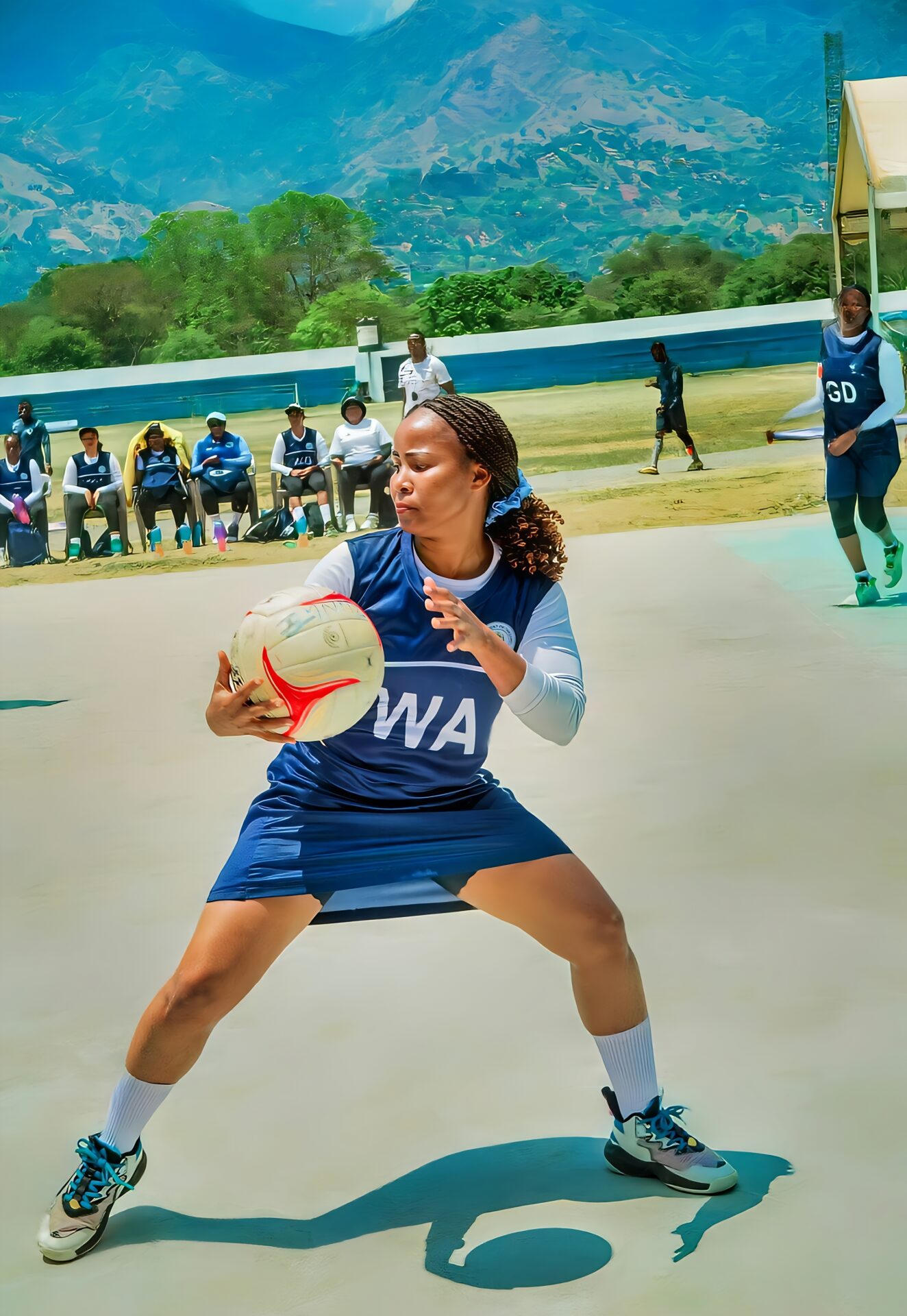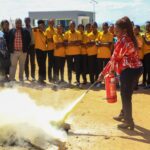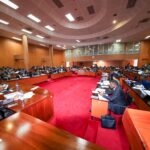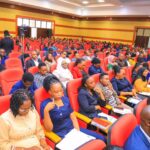The ongoing Shimiwi competition, held in Morogoro Region, has seen Tanzanian Parliament employees demonstrate remarkable prowess and excel in the competition. The Parliamentary Men’s Rope Team demonstrated their expertise by emerging triumphant against the Ministry of Water’s Women’s Rope Team.
The Parliamentary Staff Team exhibited exemplary sportsmanship by playing to a draw against the Ministry of Water today at Jamhuri Stadium. Moreover, the team exhibited their proficiency in scoring by achieving a 75-1 victory against the Cotton Board at the aforementioned venue.
The Parliamentary Staff Men’s Rope Team further extended their winning streak by securing a victory against RAS Simiyu in today’s match. Furthermore, the Women’s Rope Team Parliamentary Staff demonstrated their superiority by outperforming the Ministry of Lands in the Men’s Rope Team competition.
In other matches, the Office of the Prime Minister and the Parliamentary Staff Team each secured a draw on 20 September at Jamhuri Stadium. The Parliamentary Staff Football Team demonstrated their prowess by securing a 1-0 victory against the Attorney General’s Office on the same day. The Parliament team achieved a definitive victory in the netball game, with a final score of 31-19 against Elimu.
As the Shimiwi competition progresses, the Tanzanian Parliamentary employees continue to demonstrate their athleticism and determination. Their confidence in achieving victory is well-founded, given their impressive performances thus far.
Tanzanian Parliament
The Tanzanian Parliament is the supreme legislative authority within the Tanzanian political system. The Tanzanian Parliament is unicameral, comprising a single legislative chamber. The Parliament is constituted by 393 members, elected by universal adult suffrage for a five-year term. The Parliament is responsible for the enactment of legislation, the approval of the budget, and the supervision of the government. The Speaker is the head of the Parliament and is elected by the members of Parliament. The current Speaker is Dr. Tulia Ackson.
The Parliament is subdivided into 26 standing committees, which are tasked with the examination of government policies and legislation. The chairpersons of the committees are members of Parliament, appointed by the Speaker.
Additionally, the Parliament comprises a number of select committees, which are constituted for the purpose of investigating particular issues. The Parliament is situated in Dodoma, the capital city of Tanzania. The Parliament building is a contemporary structure, completed in 1996.
The Parliament is accessible to the general public, and guided tours of the building are available. The Tanzanian Parliament represents a pivotal institution within the country’s governmental structure. The Parliament plays a pivotal role in the country’s democratic process and in Tanzania’s overall development.
About Tanzanian Parliament:
Tanzania’s supreme legislative body is composed of 393 elected members.
The legislative body is responsible for the enactment of legislation, the approval of budgets, and the supervision of the government.
The Speaker, Hon. Dr. Tulia Ackson, is the head of the body.
Its seat is located in Dodoma, the capital of Tanzania.
It plays a pivotal role in Tanzania’s democratic process and development.
Shimiwi competition
The Shimiwi competition is an annual sporting event for the employees of the Tanzanian Parliament. The competition is held in the Morogoro Region and comprises a variety of sporting activities, including football, netball and rope pulling. The competition is named after the Shimiwi constituency, which is located in the Morogoro Region.
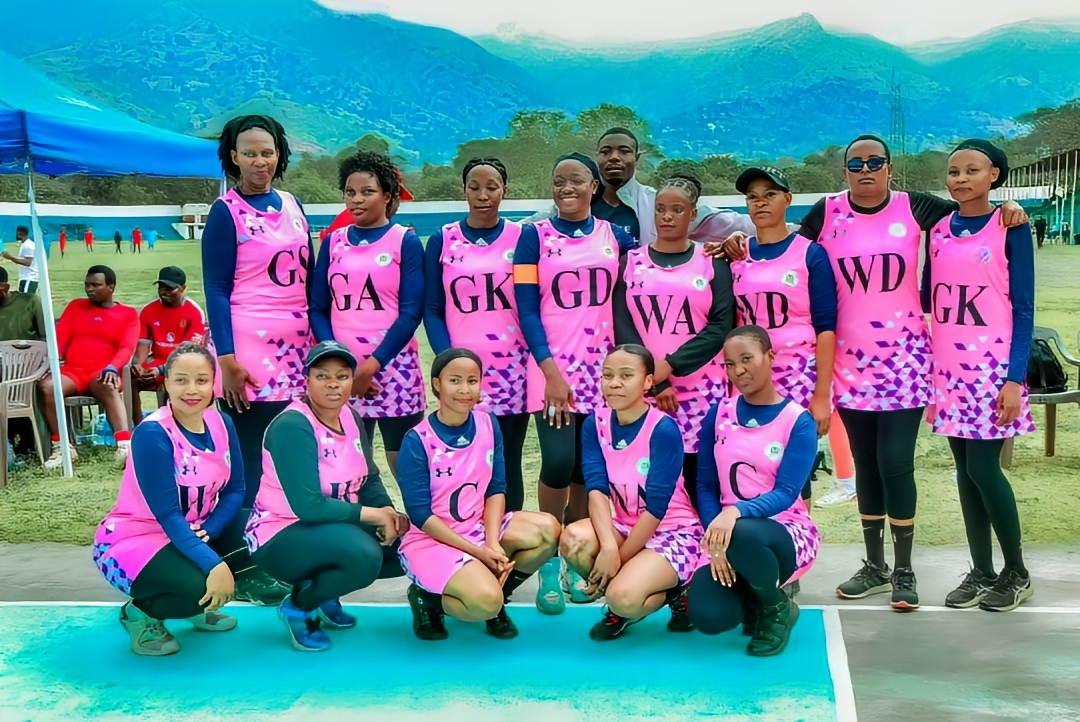
The Shimiwi competition is a highly regarded event among Parliament employees, and it is regarded as an effective means of fostering teamwork and sportsmanship. Furthermore, the competition provides an opportunity for employees to demonstrate their athletic abilities. The Shimiwi competition is typically held over a period of several days.
The winners of the competition are awarded medals and trophies. The Shimiwi competition is a valuable event for the Tanzanian Parliament, as it encourages the development of teamwork, sportsmanship, and athleticism among employees. Additionally, the competition facilitates social interaction and networking among employees.
Sports benefit
Sports are defined as physical activities that are governed by a set of rules or customs and often engaged in competitively. Sports can be utilised as a means of enhancing physical fitness and mental well-being, while also serving as a source of entertainment. The classification of sports is extensive, encompassing a multitude of categories, including team sports, individual sports, and adventure sports.
In team sports, two or more teams engage in competition with one another. Some of the most popular team sports include football, basketball, baseball, and soccer. In individual sports, a single competitor engages in a contest against one or more opponents or against a set of established standards. Individual sports that are widely practised include running, swimming, cycling and tennis. Adventure sports are defined as activities that are typically performed in a natural environment and that often involve a certain degree of risk. Notable examples of adventure sports include rock climbing, kayaking, and snowboarding.
The practice of sports can confer a multitude of advantages upon individuals of all age groups. Such activities have been demonstrated to enhance physical fitness by increasing strength, endurance, and flexibility. Furthermore, participation in sports has been linked to enhanced mental well-being, characterised by reduced stress levels, an improved mood and elevated self-esteem. Furthermore, participation in sports can facilitate social interaction and the formation of new friendships.
For those wishing to become involved in sporting activities, there are a plethora of avenues through which this can be achieved. One may choose to join a sports team, enrol in a sports class, or simply commence an exercise regimen independently. Furthermore, numerous sports organisations are available to provide information and resources.
In addition to the aforementioned advantages, participation in sports offers the following benefits:
Participation in sports can contribute to the enhancement of cardiovascular health. Regular exercise has been proven to strengthen the heart and lungs, while also reducing blood pressure and cholesterol levels.
Furthermore, participation in sports can contribute to enhanced bone health. Regular exercise has been proven to increase bone density and reduce the risk of developing osteoporosis.
Furthermore, participation in sports can assist in enhancing flexibility and range of motion. Regular exercise can help to improve muscle tone and flexibility, while also having a positive impact on posture.
Participation in sports can assist in enhancing one’s balance and coordination. Regular exercise can help to strengthen the core muscles and improve balance.
Participation in sports can also lead to improved sleep quality. Regular exercise can help to improve sleep quality by tiring the body out and making it easier to fall asleep.
* Sports can help to improve your mood. Exercise has been shown to release endorphins, which have mood-boosting effects.
* Sports can help to reduce stress. Exercise has been shown to relieve stress and tension.
* Sports can help to improve your self-esteem. Exercise has been shown to help you to feel more confident in your abilities.
* Sports can help you to make new friends. Exercise has been shown to be an effective way to meet new people and make friends.
If you are seeking to enhance your physical and mental wellbeing, participation in sports may be an optimal choice. It is advisable to consult with your physician before embarking on a new exercise regimen and to select an activity that aligns with your interests and fitness level.
Training
Training is the process of teaching or developing skills and knowledge in order to enhance performance. Training can be formal or informal and may occur in a variety of settings. Training is a vital tool for enhancing performance and meeting objectives.
There are a number of different types of training available, including:
* On-the-job training: This form of training is conducted in the workplace and involves acquiring new skills and knowledge while carrying out one’s duties.
* Off-the-job training: This type of training is conducted outside of the workplace, typically in the form of classes or workshops.
* Formal training: This type of training is structured and organised, and it typically leads to a certification or degree.
* Informal training: This type of training is less structured and organised, and it typically involves learning from colleagues or mentors.
Training can be used to develop a variety of skills and knowledge, including:
* Technical skills: These skills are specific to a particular role or industry sector.
* Soft skills: These skills are more transferable, and can be applied to a variety of roles and industries.
* Knowledge: This term denotes the information and understanding that an individual possesses regarding a specific subject matter.
Training is a crucial element in any business, offering numerous benefits.
* To enhance performance: Training can assist in enhancing performance by facilitating the acquisition of new skills and knowledge.
* To achieve business goals: Training can assist you in achieving your objectives by equipping you with the skills and knowledge required for success.
* To progress in your career: Training can facilitate career advancement by enhancing your qualifications for promotions and new positions.
* To remain current: Training can assist you in staying abreast of the latest trends and developments in your field.
If you are seeking to enhance your skills and knowledge base, training represents an excellent option. A variety of training options are available to suit different needs and interests.
In addition to the aforementioned advantages, training offers the following benefits:
Training can assist in developing greater confidence.
Training can also assist in developing greater adaptability.
Training can assist in the development of leadership skills.
Training can also assist in developing enhanced communication skills.
Training can also assist in developing creative abilities.
If you are seeking to enhance your skills and knowledge base, training represents an excellent option. Contact your employer or a training provider to learn more about the training options available to you.
Teamwork
Teamwork is the ability of a group of people to work together effectively in pursuit of a common goal. It entails collaboration to exchange ideas, resolve issues, and make decisions. Effective teamwork is a key factor in success in a wide range of areas, including the workplace, education and sports.
There are numerous advantages to teamwork, including:
* Improved productivity: Teams are often more effective than individuals working alone.
* Improved quality: Teams are often able to produce work of a higher quality than individuals working alone.
* Enhanced creativity: Teams are often better able to devise creative solutions to problems than individuals working alone.
* Improved problem-solving capabilities: Teams are often more effective at solving problems than individuals working alone.
* Improved decision-making processes: Teams are often better equipped to make sound decisions than individuals working alone.
* Improved motivation: Teams can often provide each other with the motivation to work harder and achieve more.
* Improved communication: Teams are often better at communicating than individuals working alone.
* Improved learning outcomes: Teams can often facilitate more effective learning than individuals working alone.
* Greater job satisfaction: Team-based work is often perceived as more satisfying than individual work.
In order to be effective, teams must possess a number of key elements, including:
* Clearly defined objectives: It is essential that teams have clearly defined goals that they are working towards.
* Effective leadership: Teams require strong leadership to maintain focus and motivation.
* Effective communication: It is essential that teams are able to communicate effectively with each other.
* Trust and respect are essential. It is essential that teams have trust and respect for each other in order to work effectively together.
* Diversity: Teams comprising individuals with diverse perspectives and experiences can often prove more effective than those with a more homogeneous composition.
If you are seeking to enhance teamwork within your organisation, there are a number of measures you can implement, including:
* Define clear objectives. It is essential to ensure that all members of the team are fully aware of the objectives being pursued.
* Provide strong leadership: Lead the team with clarity and brevity, maintaining focus and motivation.
* Promote effective communication: Create an environment in which team members feel at ease sharing their ideas and opinions.
* Cultivate trust and respect: It is important to get to know your team members and to foster a culture of trust and respect within the team.
* Celebrate achievements: It is important to take the time to celebrate the achievements of your team, whether they are significant or more modest.
Effective teamwork is a crucial skill for success in many areas of business. By grasping the advantages of teamwork and the essential qualities of high-performing teams, you can facilitate your team’s success.
Excellence
The term “excellence” is used to describe a quality that is outstanding or extremely good. It is the outcome of a commitment to achieving the highest standards in all aspects of your work. While excellence is not about perfection, it is about maintaining a commitment to continuous improvement and avoiding complacency.
The benefits of striving for excellence in business include:
* Improved motivation
* Enhanced performance
* Greater satisfaction
* Strengthened reputation
* Expanded opportunities
To achieve excellence, one must:
* Set ambitious goals for yourself
* Be prepared to work hard
* Persevere through challenges
* Build a supportive network
* Celebrate achievements
The pursuit of excellence is not a destination in itself, but rather a journey that requires ongoing commitment and dedication. It is a continuous process of enhancement and expansion. By establishing rigorous standards for yourself, exerting consistent effort, and maintaining resilience, you can attain excellence in your professional endeavors.
Tanzania Media
- Tanzanian Women’s Football Derby: Yanga Princess Stuns Simba Queens with 1-0 Victory - 25 March 2025
- Tanzania’s Parliamentary Debate 2025: Addressing Infrastructure, Water Access, and Environmental Challenges - 25 March 2025
- Tanzania’s Vision for Inclusive Growth: Insights from the Ministry of Community Development’s 2024/2025 Budget - 24 March 2025

